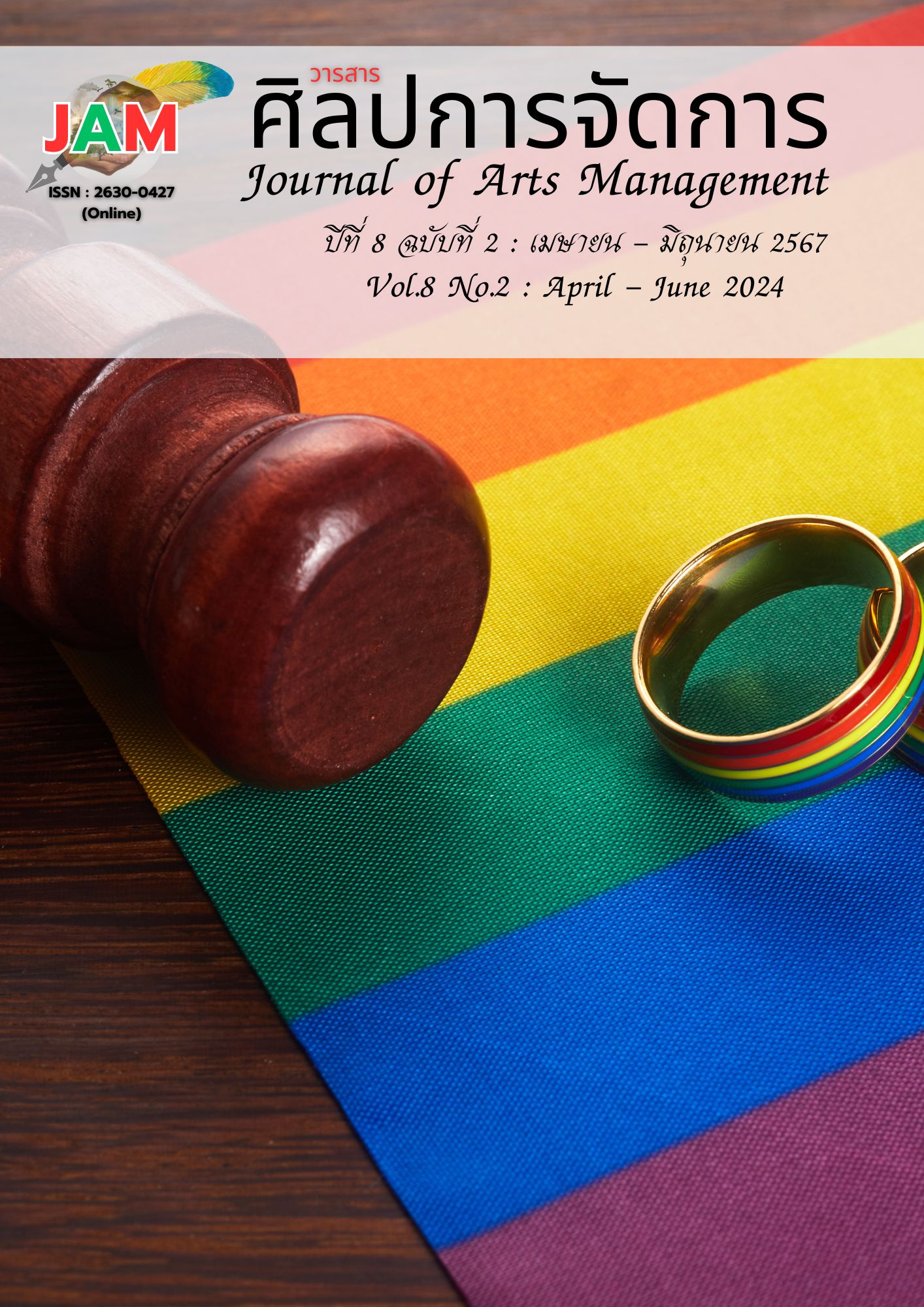The Enhancement of Community Innovation in Driving Cultural Capital for Nakhon Sawan Province
Main Article Content
Abstract
The objective of this research is to explore and extract lessons from the social capital and cultural potential of communities in driving cultural tourism development paths in Nakhon Sawan province. It aims to analyze social capital data that demonstrates the potential of the community towards developing cultural tourism routes and to create community innovators in transmitting historical knowledge of the community. This qualitative research involves collecting data in a focused area from seven historical sites, from Phra Bang to Nakhon Sawan, from a historical evidence perspective. It includes in-depth interviews with 84 key informants and focus group discussions with 35 key informants selected through purposive sampling. Subsequently, the collected data will be analyzed using a content analysis approach. The research results were found as follows: The research findings suggest that social capital and community potential in driving cultural capital are closely related to the physical condition of the community, natural resources, the environment, socio-economic status, culture, and production, as well as the interconnected pathways between communities. By linking historical data, community culture, and local knowledge of social capital at four levels- individual, group/community organization, institutional/resource unit, and village/community –a learning and innovation platform can be established to develop cultural tourism routes. This platform can serve as a tool for community innovators to pass on historical knowledge.
To effectively utilize research findings for the benefit of society, it is important to integrate the knowledge with the identities of communities that are similar to the research area. This reflection highlights the importance and value of social capital and the potential of communities to drive more efficient cultural momentum. By incorporating research results into the local context, we can enhance the cultural development and social well-being of communities, ultimately leading to a more prosperous and harmonious society.
Article Details

This work is licensed under a Creative Commons Attribution-NonCommercial-NoDerivatives 4.0 International License.
Views and opinions appearing in articles in the Journal of Arts of Management It is the responsibility of the author of the article. and does not constitute the view and responsibility of the editorial team I agree that the article is copyright of the Arts and Management Journal.
References
Boonmeesrisaga, M. (2015). Patterns meaning and Strategy of Dark Tourism Marketing in Kanchanaburi, Thailand. Veridian E-Journal, Silpakorn University, 8(2), 571-592. https://he02.tci-thaijo.org/index.php/Veridian-E-Journal/article/view/40229
Carroll, T., Cardou, F., Dornelas, M., Thomas, C. D., & Vellend, M. (2023). Biodiversity change under adaptive community dynamics. Global Change Biology, 29(13), 3525-3538. https://doi.org/10.1111/gcb.16680
Cohen, D., & Prusak, L. (2001). In Good Company: How Social Capital Makes Organizations Work. Ubiquity.
https://doi.org/10.1145/358974.358979
Field, J., Schuller, T., & Baron, S. (2000). Social Capital and Human Capital Revisited. In Social Capital (pp. 243–263). Oxford University Press.
Fukuyama, F. (1995). Trust: The social virtues and the creation of prosperity. The Free Press.
ICOMOS. (2003). Heritage at Risk: ICOMOS World Report 2002/2003 on Monuments and Sites in Danger. https://openarchive.icomos.org/id/eprint/3029/1/HR_2002-2003.pdf
Investment Coordination Division Tourism Authority of Thailand. (2013). Tourism Authority of Thailand. Creative Tourism Creative. http://tourisminvest.tat.or.th/ctbookth/files/assets/
Investment Coordination Division Tourism Authority of Thailand. (2023). Creative Tourism Business Investment Promotion Project. http://tourisminvest.tat.or.th/ctbookth/
Khamman, S. et al. (2008). Towards quality and sustainable growth. In Annual Academic Seminar 2008. Ambassador City Jomtien Hotel, Chonburi: Chaipattana Foundation. Office of the National Economic and Social Development Board and the Thailand Development Research Institute Foundation, November 29-30.
Nuambunlue, S. (2007). The identity and value of cultural tourism resources in teaching materials, Thai tourism resources course, Units 9-15. Sukhothai Thammathirat Open University.
Richard, F. (2011). Peut-on parler d'une « société du malaise»?. Adolescence, 293, 571-582. https://doi.org/10.3917/ado.077.0571
Sangraksa, N., & Lakkhananurak, S. (2012). To develop and raise the level of cultural tourism to a creative economy through the sustainable participation of network partners in Ratchaburi Province. National Research Council of Thailand.


